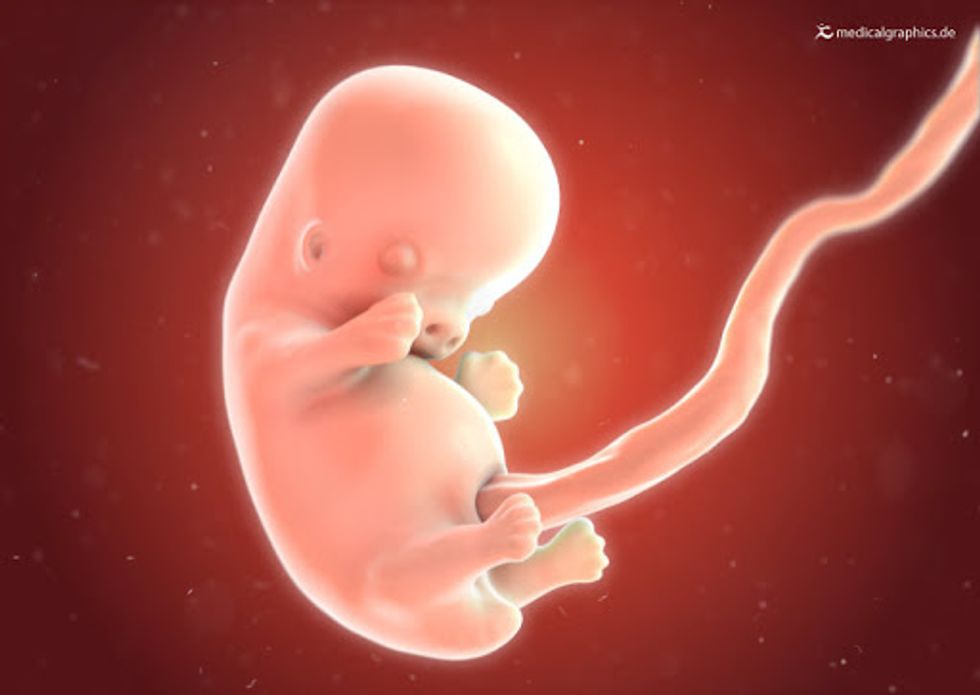Embryogenesis
The limits of modern medicine push further and further every day
The reproductive system is a complex system that works like a machine to create life. The work and research being done with stem cells and embryogenesis are reaching new scientific heights. Back in the early 2000s researchers in Melbourne, Australia were trying to form embryos by using somatic cells instead of sperm and were somewhat successful. They injected nuclei from cumulus cells, which surround developing oocytes, into intact mouse eggs, allowed each egg to rest for 2 to 3 hours, and then induced mitosis chemically. This process was done in vitro, and the researchers did not try to implant these eggs into female mice, but they did say that a lot of work still had to be done before the possibility of live offspring was in the question.
More recently in 2018, scientists created artificial embryos without sperm or eggs, which began to transform into live fetuses after being implanted in female mice. This is such a large step up from the previous research involving the sole absence of sperm. Creating embryos without sperm or egg? I think this is a pretty impressive feat.
The artificial mouse embryos were made from stem cells called extended pluripotent stem cells. These stem cells have the ability to generate all three cell types found in early embryos; ectoderm, endoderm, and mesoderm. In a normal fetus, these three layers develop to form different parts and tissues of the body. Researchers at the University of Texas Southwestern Medical Center instigated the cells to turn into these three cell types and form embryo-like structures by soaking them in special nutrients and growth stimulants.
The team then transferred the artificial embryos to the uteruses of female mice, where seven percent successfully implanted. A week later, the implanted embryos were surgically removed by cesarean section. Closer examination showed that the fetuses had started to form early fetal structures, but they had many large abnormalities. This breakthrough is amazing yet shows that there is still a long way to go before there is talk of real offspring being birthed from a method like this.
These experiments bring up a plethora of ethical questions that I find very interesting. Would it be right to bring children into a world where they don't have any biological parents? Is it fair to the children to give them a life like that?

























Genetically Modification Could Save Future Babies From Illnesses, But Also Pose New Issues
Now imagine if people can breed smarter, stronger, and (sociologically) more attractive kids? The problem is that the possibilities are truly endless, and this experience has insidious implications.
You read that right. He Jiankui, a renowned scientist from China, has created the first two human genetically modified babies. The technology is called CRISPR/Cas9, and it's the same tech that we use to modify plants like soy.
My first question was "are people just allowed to do that?" Well, depends on what country you live in. In the US for example, there are at the least minimal regulations based on ethics. However, this hasn't stalled us from innovating at a startling pace. America only lagged two years behind China for the first genetic modifications to a human embryo. Since it is seen as far more controversial in Western nations, we have seen the slight delay of creating genetically modified babies. But make no mistake, it is only a lag. Not a prevention.
Many critics of this innovation echo the sentiment of Eric Topol, a geneticist at the Scripps Research Institute, who said, "We're talking about changing every cell of the human body's 37 trillion cells. That's never been done before. And it was done in a rogue fashion.''
But the changing of our genetics begs a bigger question than the way it was accomplished.
Should we be able to alter our genes?
People inside and outside the scientific community are saying no, and for many different reasons. The first deals with whether or not we should diagnose embryos with genetic diseases and cure them before the infant is born, and then use genetic modification as a direct solution. For example, He was altering the embryos in order to prevent the HIV that they would have from their fathers. However, there are already scientific methods that do not involve genetic modification, such as "washing" the sperm of the HIV. The truth is, once this technology hits the market, we can't currently regulate which method people will choose. And CRISPR kits are already inexpensive online, rounding up to about $1,000. There's a lack of legal understanding, in the US and abroad, on whether or not these experimentations are legal. This compounds the problem when the effects of this innovation can be massive and devastating.
The next controversy deals with "designer babies." This is a concept developed from the imagination of what gene editing could bring, with a terrifyingly familiar tune of eugenics. Will people begin crafting a "superior race"? As one can imagine, this will only be accessible to the wealthy one-percenters who already have paramount advantages over the rest of the population. Now imagine if people can breed smarter, stronger, and (sociologically) more attractive kids? The problem is that the possibilities are truly endless, and this experience has insidious implications.